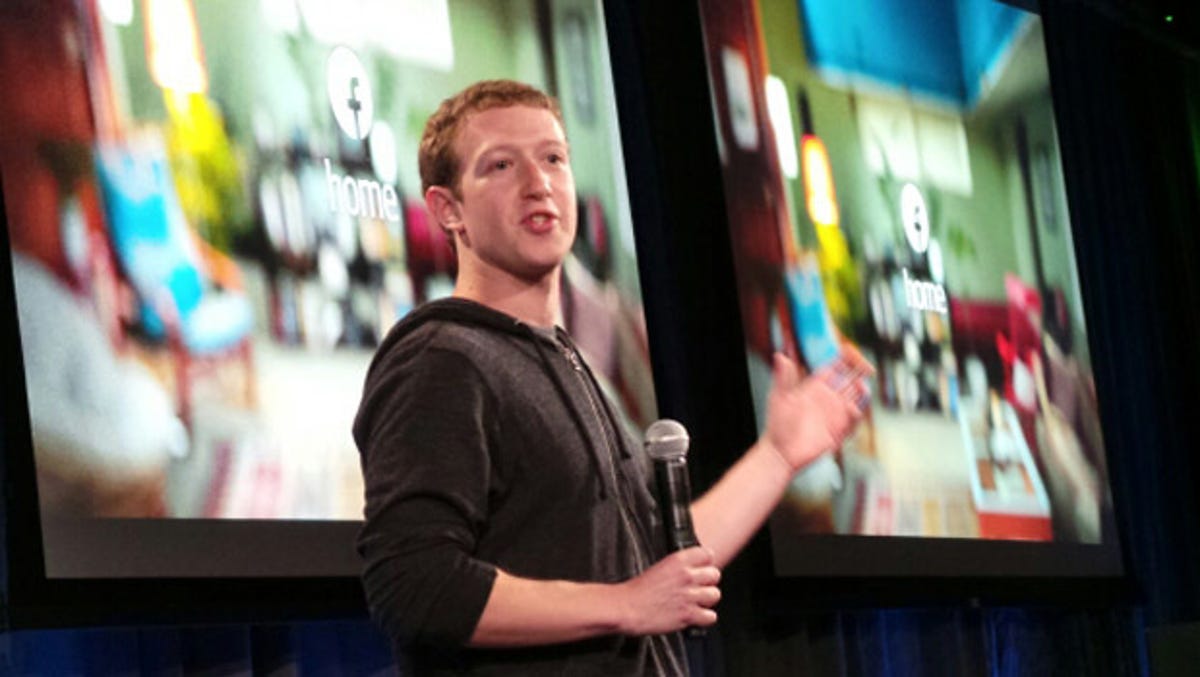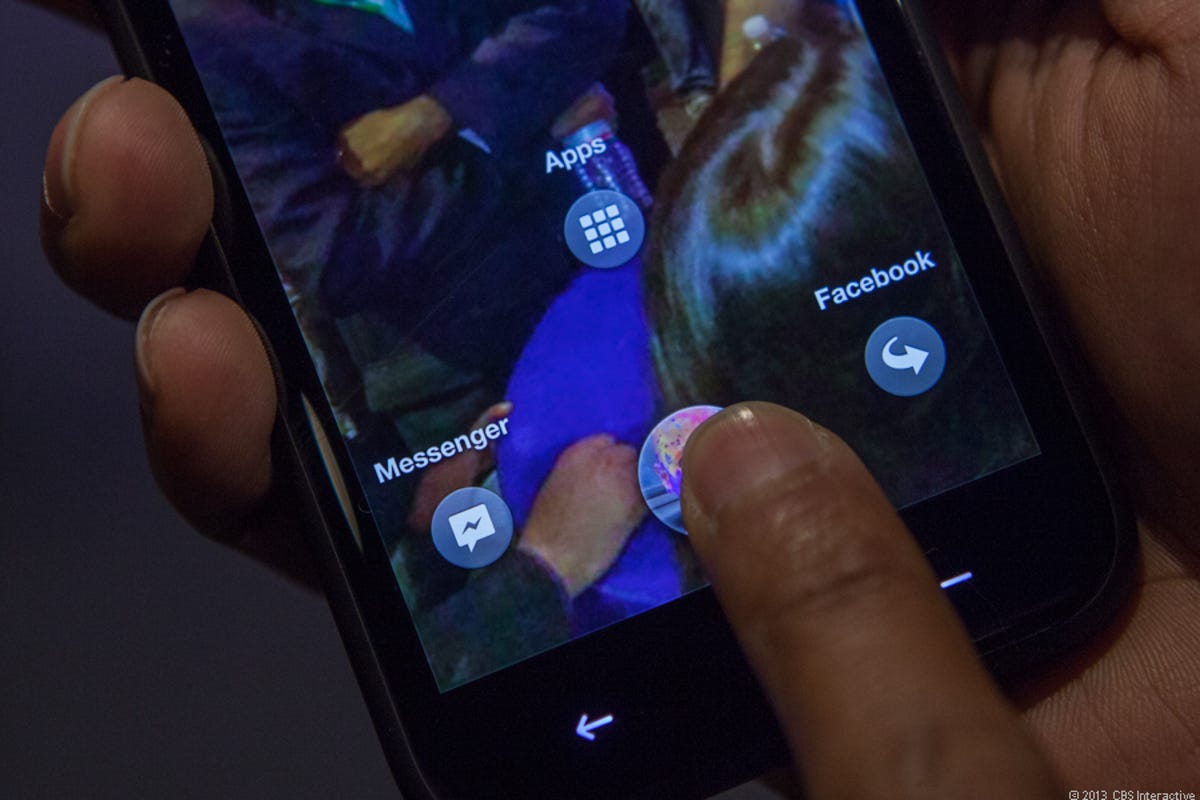Facebook doesn’t want anything to come between you and your friends, not even Google or Android.
Facebook today unveiled a new downloadable user interface that takes over your smartphone’s home screen, lock screen, and wallpaper. Instead of the regular Android features, you’re treated to a slideshow of updates, photos, and shared links.
Related stories:
- Facebook unveils ‘Home,’ a family of apps for your Android phone
- Facebook Home: Facebook takes over Android
- Facebook announces Home for Android (pictures)
- HTC First: The debut Facebook Home phone
- A look at the HTC First, aka: the ‘Facebook phone’ (pictures)
- Facebook launches Chat Heads for staying in touch with friends
- Facebook Home: Bold experiment or extreme bloatware?
- Facebook’s Zuckerberg: Home is actually good for Android
Facebook wants to take direct control of its user base, and it’s going about it in a smart way. Home, which will be available for download on April 12 on select Android phones, isn’t a new phone or operating system, or even a radically customized version of Android like Amazon’s Kindle Fire.
Home is a collection of apps and a user interface stitched together to create the appearance of a new smartphone experience, which makes it even more dangerous. It’s one that has the potential to supercede Android for some — particularly the most devout Facebook fans. That should have Google worried.
“You can see how [Home] takes over the phone, and you see more and more of what Facebook wants you to see and less and less of what Google wants you to see,” said Creative Strategies analyst Ben Bajarin.
Because the software runs on top of Android, Facebook can get Home into a lot of devices quickly and with little restriction. Home users could conceivably stay in this newly constructed socially focused bubble, or at the very least reduce their reliance and use of core Google-built features.
“What really matters to Google is that their search gets used on all devices,” Bajarin said. “I wouldn’t think Google is necessarily concerned until something starts to show [Facebook Home] will tread on their search business model.”
In addition to its “cover feed” slideshow presentation, Home includes an app launcher to bookmark the essential apps you want to access, as well as “chat heads” that notify you whenever someone sends you a message. Those heads don’t disappear, no matter what else you access, until you respond or hide them.


CNET/James Martin
Android is a free, open-source product for a reason. Google generates most of its revenue from advertising on the phones themselves, and it relies on users to access its search, e-mail, and related products. While Facebook didn’t mention its own search tool, Graph Search, during the Home launch today, it’s not hard to imagine the social-networking giant adding those capabilities to its new product. And what’s to say Facebook won’t launch its own competing app store or build a mapping program?
After all, Facebook and Google are butting up against each other in more areas all the time, such as Google getting into social networking and Facebook expanding into search. Mobile is a key battleground for the two companies, and it’s certain both will be pushing to control the market. For now, Google has a massive leg up with the dominant adoption of Android.
Home will allow Facebook to track more user behavior on mobile devices, as well as serve up more advertising, said Ovum analyst Jan Dawson. Both are key advantages Google gains from Android.
“Since Facebook doesn’t make an operating system for mobile devices, this is the next best thing,” Dawson said.
For now, Google is staying neutral on Facebook Home.
“The Android platform has spurred the development of hundreds of different types of devices,” said a Google representative. “This latest device demonstrates the openness and flexibility that has made Android so popular.”


James Martin/CNET
Facebook Chief Executive Mark Zuckerberg, meanwhile, noted during his presentation today that Home actually “is really good for Android” as it should get app developers to bring “high-quality experiences” to the operating system. However, he also noted that Home will appear first on Android, not iOS, because Facebook could do whatever it wanted with the operating system.
“Google’s Android is open, so we don’t have to work with them,” Zuckerberg said.
That simple comment likely underscores where the two companies stand on Home. While Google doesn’t outwardly oppose it because of its commitment to remain open, the search giant can’t be happy about it.
Of course, Zuckerberg could be right, and Home could benefit Android. If the product really takes off, it could cause people to dump their iPhones in order to get access to Home on Android devices. And whether it takes off or not, it’s unlikely the majority of users will constantly stay in the program rather than accessing other apps.
Either way, Google is likely to keep a close eye on Facebook’s efforts and whatever Zuckerberg has up his sleeve next.



